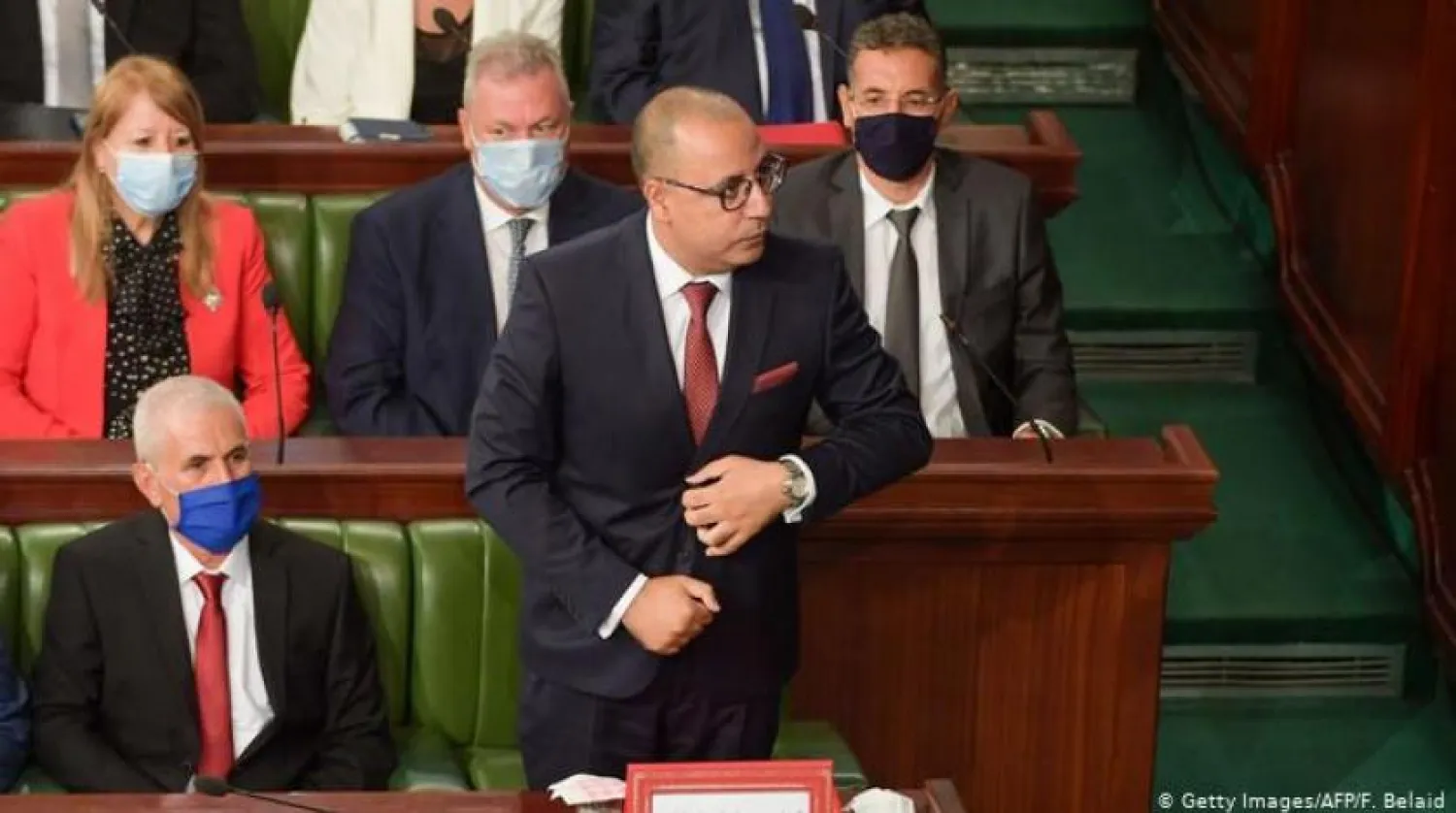The Free Destourian Party, led by Abir Moussi, canceled its scheduled meeting with Prime Minister Hichem Mechichi, in protest for his meeting with a delegation from the Dignity Coalition, which supports the Islamist Ennahda movement.
She confirmed, in a media statement, that the decision to cancel the meeting came after Mechichi received the Coalition, saying it provokes the feelings of victims of terrorist operations.
The leader said that the PM's reception of “representatives of the pro-terrorist bloc” just hours after the protest against terrorism in Tunis sends a negative message to the public.
Moussi also criticized what she described as the “terrorist octopus”, stressing that her party would take steps in the next stage to combat this dangerous scourge.
Mechichi's step reflects the lack of political will to meet the demands of the masses aiming to seriously discuss the issue and end the “whitewashing” of terrorist crimes, she said, noting that she was preparing an anti-terrorism document dealing with the Brotherhood that is uncontrollably growing in Tunisia, indicating that her party would present it to the PM.
Earlier, Mechichi received a delegation from the Dignity Coalition, as part of his meetings with heads of parliamentary, political, and civil blocs.
The PM stressed the importance of dialogue and coordinating efforts between all parties to overcome the outstanding problems in a number of areas, namely socio-economic issues and development in the regions.
Meanwhile, the of the Heart of Tunisia party, Nabil Karoui, strongly criticized the government mishandling of the coronavirus pandemic.
He claimed that all health experts agree that the next wave of the coronavirus infections will get worse in the country. He pointed out that there are major mistakes “committed against the country,” which led to the current situation.
He asked about the fate of the funds that were sent to Tunisia to help in the fight against COVID-19, referring to the conflict of interest issue that led to the resignation of the government of Elyes Fakhfakh.
He wondered who was responsible for the decision to re-open the borders on June 27, neglecting the measures to tighten health restrictions at crossings, such as allowing foreigners to enter the country without needed testing.
“After answering these legitimate questions, everyone must support the government to fix what the corrupt officials have done, so that Tunisia emerges from its crisis truly victorious and united.”









